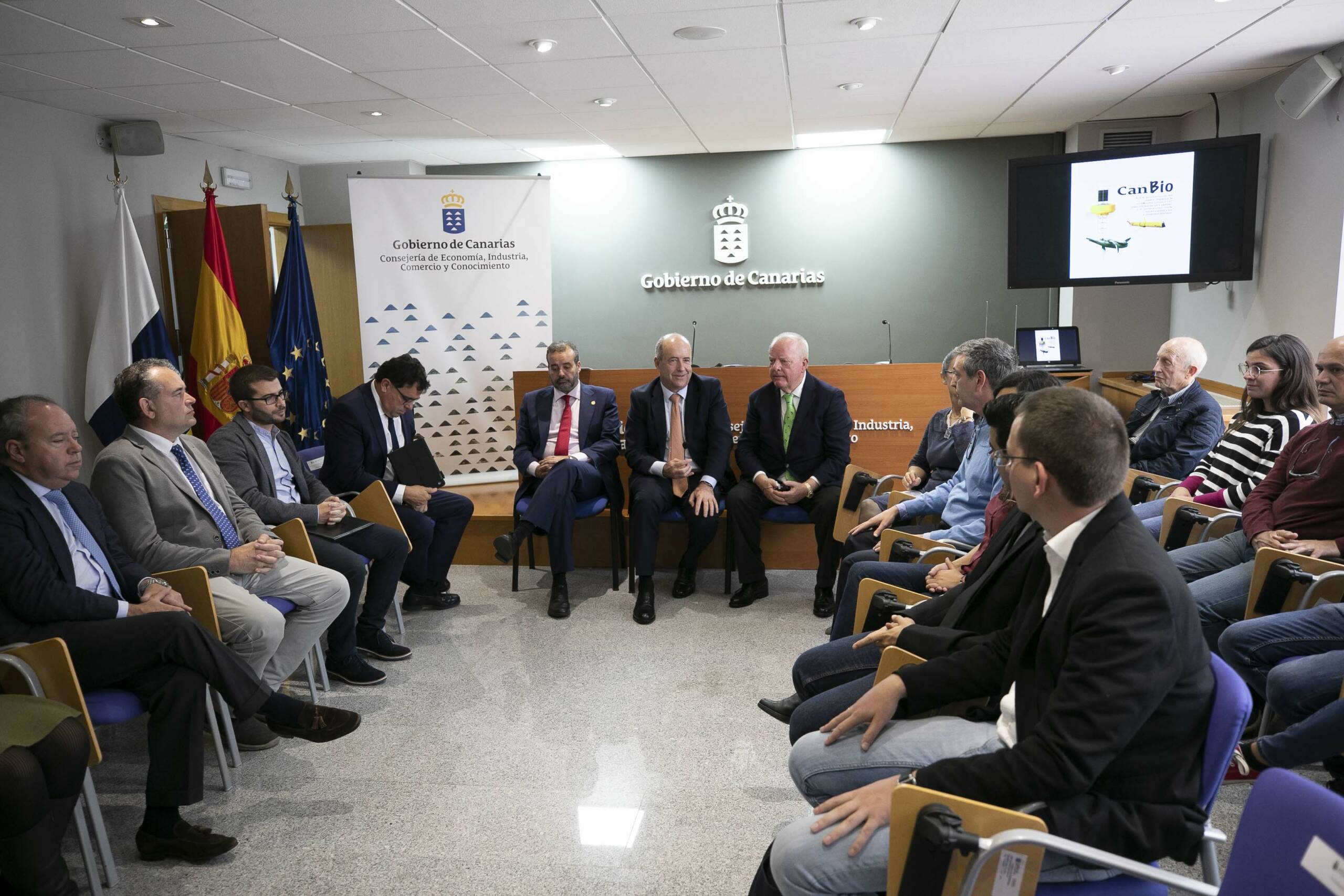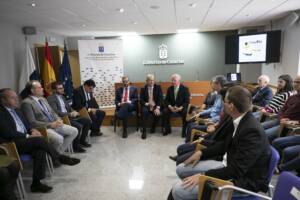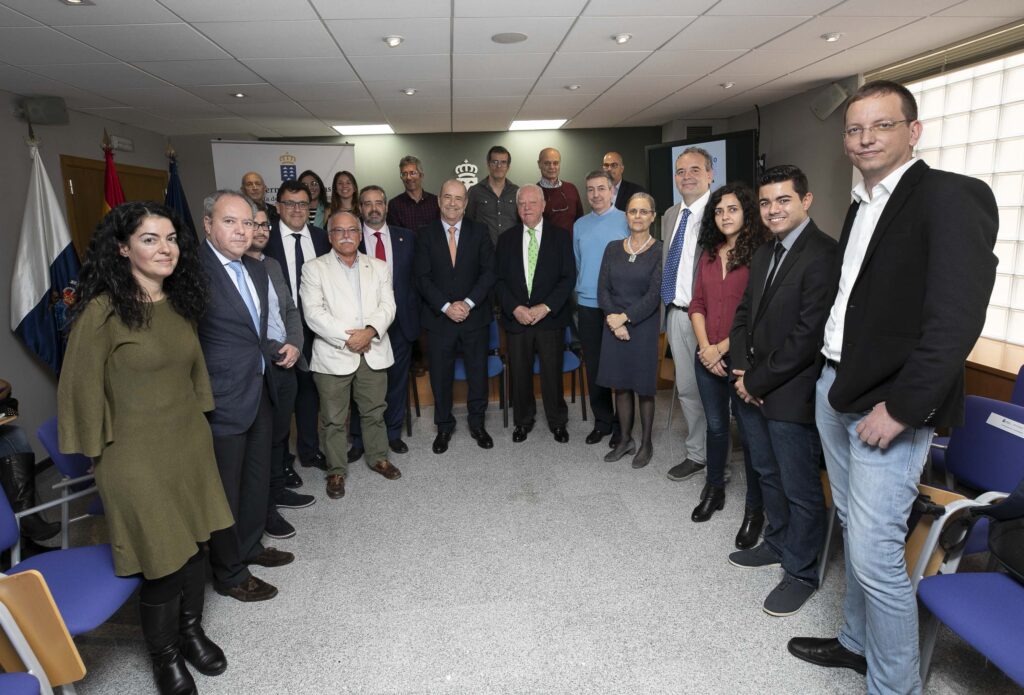The Loro Parque foundation and the Canary Islands Government have, this morning, Thursday November 15, presented ‘CanBio’, a pioneering project through which the University of La Laguna (ULL) and the University of Las Palmas de Gran Canaria (ULPGC) will study the effects of climate change in the sea. Present at the event were the Canary Islands Minister of Economy, Industry, Trade and Knowledge Pedro Ortega, the founder and Honorary President of The Loro Parque Foundation Wolfgang Kiessling and the rector of the ULPGC Rafael Robaina, as well as researchers from the Canary Islands public universities.
The project plans to invest two meuros over four years, spread over several lines of work ranging from monitoring the parameters of marine chemistry, to the study of communities of algae, angel sharks or sea turtles. The Foundation, based in what is recognised as the world’s best zoo, will thus be helping the dissemination of as much information as possible to monitor the effects of global change in the Canary Islands.
This agreement between the Foundation and the Canary Islands Government has been reached after a detailed technical evaluation with research groups from the two Canarian universities and other scientific research centres, and will initiate the development of a coastal network for monitoring marine environmental parameters linked to climate change, ocean acidification and underwater noise pollution, as well as their effects on the marine biodiversity of the Canary Islands.
The project activities will focus on three main axis: the absorption of CO2 by the ocean, climate change and ocean acidification; the acoustic environment, underwater noise and its effects on fauna and the loss of marine biodiversity and the effects on the Islands species and marine ecosystems.
All these actions establish synergies with the previous activity of The Loro Parque Foundation in the archipelago and, in each case, will provide essential information with which to interpret the effects that global change will produce in the marine organisms of the Canary Islands and Macaronesia. Thus, the region will become a world reference, providing relevant data on climate change for the international community, as well as helping to diagnose the effects of global change in the area.
In addition, this agreement will lay the foundations to guarantee the future development of time series stations and ocean measurements in the region, with technology produced in the Canary Islands. In this way, The Loro Parque Foundation reinforces its commitment to become a scientific and technological reference within the framework of global change and the Blue Economy.




